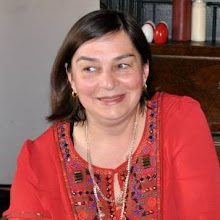Imagine my surprise when I realised the hard-to-believe premise of Deceptions, by Rebecca Frayn, is based on a true story. If your son disappeared at the age of 12 and returned a few years later, would you be able to recognise him with certainty? Would you know if the returning prodigal was an impostor, and if so would you pretend not to notice?
It really doesn’t matter whether this is credible or not, or that we can ruin part of the plot by reading about the story that inspired Deceptions in the back of the book. The character who fascinates the reader isn’t Dan, the 12-year-old who vanishes without a trace, or his widowed mother Annie, whose obsessive search is completely understandable. Our attention is all on Julian, the man who had moved in with Annie and had just asked her to marry him when Dan set off on his bike to school one morning and didn’t come home again.
Frayn has taken a real risk with Julian, and so has the publisher. Not so long ago aspiring novelists were told main characters had to be likeable, and Julian certainly isn’t able to get our sympathy at any level. Annie wants to be totally politically correct, with her left-wing views, her relaxed attitude to parenting, and her determination to live in a poor area and send her children to the local failing comprehensive.
Julian is an art specialist and valuer, pulling on his hygienic white gloves to study and evaluate fakes and masterpieces in the art world. The comprehensive school is disturbing to him, with the sound of lower class accents and children of diverse nationalities. There’s an undertone of racism and snobbery running through his first person narrative.
We don’t feel we can believe what he says because he’s so unsympathetic to us. As his dislike of Dan becomes more apparent, together with his resentment of Annie’s continuing love for her son, we do wonder if he knows more about this disappearance than he’s telling us. Annie’s daughter is quite different, seen as delightful and intelligent by him, and he likes to take her for long walks. We don’t quite trust him alone with her either.
The character of Julian is so well drawn that we can’t tell if he’s the good man he makes himself out to be, devoted to Annie and her daughter and just repressed and lacking in social skills, or if his dislike of Dan’s lack of intelligence and poor grammar is part of a dangerously abusive hidden side. Even Dan had started to be embarrassed by his mother’s Guardian on the table and had stopped bringing friends home, so it’s up to the reader to decide exactly what’s going on and who to like, if anyone.
Before Dan’s disappearance, Annie and Julian liked to joke about their different personalities, enjoying the roles of ‘right-on parent’ and ‘old fogey’. After Dan goes, their personalities force them apart, as Annie sees her engagement to Julian as the reason he ran away – if he ran away. From his lonely new bachelor flat at a distance, Julian sees the shabby residential area as a kind of utopia he wants to return to.
It’s a pity the book blurb informs us that Dan is going to turn up again as this could work well as a surprise. But is it really Dan? Can we trust Julian who has lost all respect in the art world by calling a genuine painting a fake and losing a client a small fortune? Would he not want Dan to return and convince himself any pretender to his place with Annie was an impostor? He certainly kept hoping she would forget Dan, and this insistence ruined their relationship. Or would Annie be the one to delude herself?
There are all sorts of questions in this book that keep us reading on, not least the difficult problem of how we can fit a new relationship into an established one parent home.
Subscribe to:
Post Comments (Atom)










No comments:
Post a Comment